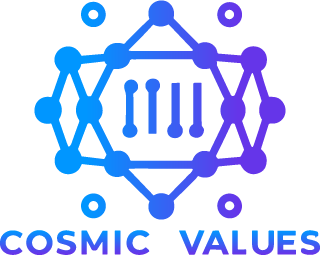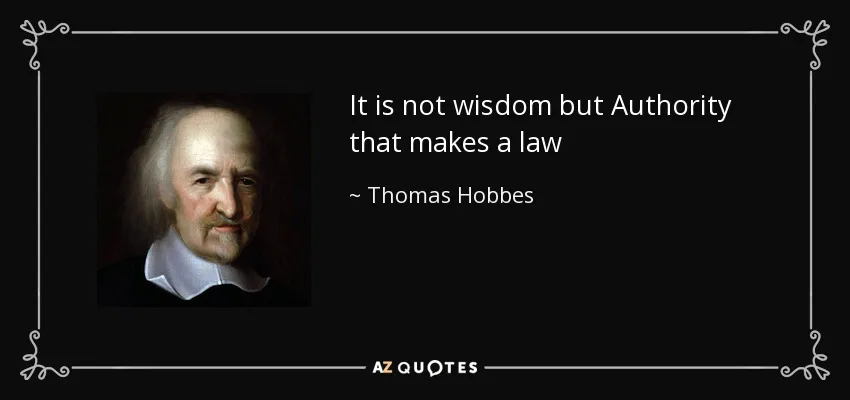The Weight of Might: Exploring the Quote “It is not wisdom but authority that makes a law. t – tymoff”
The relationship between law and morality has been a contentious cornerstone of philosophical and political discourse for centuries. The enigmatic quote, “it is not wisdom but authority that makes a law. t – tymoff” throws down a stark challenge, forcing us to confront the uncomfortable reality that the validity of a law may not always be synonymous with its inherent rightness. While the identity of “tymoff” remains shrouded in mystery, the sentiment resonates with ideas put forth by thinkers like Thomas Hobbes, who posited that laws often arise from the power dynamics within a society rather than pure reason or ethical considerations.
The Grip of Power: Authority as the Engine of Law
At its core, the quote asserts that the legitimacy and enforcement of a law are primarily driven by the authority behind it, not necessarily by its intrinsic wisdom or alignment with moral principles. A law, however unjust or harmful, can hold legal weight simply because it is backed by a powerful entity, such as a sovereign government or a dominant social group. This resonates with the concept of legal positivism, which argues that the validity of a law stems from its proper creation and adherence to established legal procedures, regardless of its content or ethical implications.
The Shadow of Injustice: When Might Trumps Morality
The stark reality painted by the quote is that history is replete with examples of laws rooted in power rather than wisdom. From the draconian decrees of ancient empires to the discriminatory statutes of segregationist regimes, countless laws have been enacted not for the betterment of society but to solidify the control of those in power and marginalize or oppress vulnerable groups. The legacy of Jim Crow laws in the United States and the apartheid regime in South Africa are stark reminders of how authority can wield the instrument of law to perpetuate injustice.
The Glimmer of Hope: Seeking Wisdom in the Shadows of Power
However, to paint the landscape of lawmaking solely in shades of might and injustice would be a grave oversimplification. Throughout history, countless individuals and movements have challenged unjust laws, striving to infuse them with the light of wisdom and morality. From the abolitionist movement fighting against slavery to the civil rights movement demanding equality for all, these forces have sought to hold authority accountable and reshape laws to reflect the principles of justice and fairness.
Balancing the Scales: The Quest for a Wise and Just Law
The quote, then, serves as a stark reminder of the constant tension between the forces of authority and wisdom in the realm of law. It compels us to critically examine the source and purpose of laws, to question whether they truly serve the greater good or merely bolster the power of the few. But it also offers a glimmer of hope, a suggestion that the pursuit of wisdom in lawmaking is not a lost cause.
So, how can we strive for a legal system that balances the weight of authority with the guiding light of wisdom? Here are some potential avenues to explore:
- Enhancing democratic participation: By ensuring broad representation and participation in the legislative process, we can bring diverse perspectives and voices to the table, making laws more reflective of the collective needs and values of society.
- Upholding the rule of law: A robust and independent judiciary, coupled with a strong system of checks and balances, can serve as a bulwark against arbitrary and unjust laws, ensuring that power is not wielded unchecked.
- Fostering a culture of critical thinking and dissent: A citizenry empowered to question, challenge, and advocate for change can play a crucial role in keeping the lawmaking process accountable and responsive to the evolving needs of society.
- Embracing ethical principles: Grounding legal frameworks in universally recognized ethical principles, such as justice, equality, and human rights, can provide a moral compass for navigating the often murky waters of lawmaking.
In addition, it is also necessary to provide legal education to children early on. For adults, implementing these solutions is difficult. For young children, it is even more necessary to adopt appropriate methods, such as games and knowledge quizzes. Items such as scales, hammers, and pin badges can also serve as auxiliary means to help cultivate the seeds of justice and fearlessness in their hearts.
Conclusion
The quote “It is not wisdom but authority that makes a law” leaves us with a profound challenge: to continually wrestle with the complex relationship between power and morality in the realm of law. It is a challenge that demands constant vigilance, critical thinking, and a relentless pursuit of justice. While there may be no utopian solution, the unwavering pursuit of a legal system that balances the weight of authority with the guiding light of wisdom remains a worthy and necessary endeavor. Only through such efforts can we hope to create a world where laws not only hold sway but also illuminate the path towards a more just and equitable society.
This exploration of the quote is just a starting point for a much larger and more complex conversation. It is a conversation that will continue to unfold across generations, fueled by the constant interplay of power, morality, and the human yearning for a just and equitable world. Let us embrace this ongoing dialogue, challenging one another to think critically about the laws that govern us and to strive for a future where legal systems not only enforce order, but also reflect the highest ideals of humanity.
Beyond the Binary: Nuances and Intersections
While the quote presents a stark dichotomy between authority and wisdom, reality is seldom so neatly contained. The landscape of lawmaking is often a tapestry woven with diverse threads. In some instances, authority and wisdom may find themselves in surprising alliance, as when progressive governments enact laws promoting social justice or environmental protection. Conversely, even the most just laws can face challenges in implementation, encountering resistance from entrenched power structures or societal biases.
Furthermore, the quote invites us to consider the multifaceted nature of both authority and wisdom. Authority itself can exist in various forms, not just the monolithic power of the state. Grassroots movements, communities of expertise, and international institutions can all wield forms of authority that shape legislation and influence legal interpretations. Similarly, wisdom is not a singular, static entity; it encompasses diverse cultural perspectives, evolving ethical frameworks, and the ever-expanding horizons of human knowledge.
Looking Beyond Borders: Global Contexts and Challenges
The question of authority and wisdom in lawmaking transcends national boundaries. In an increasingly interconnected world, international legal frameworks and treaties play a crucial role in regulating global issues like climate change, trade, and human rights. Navigating these complex landscapes requires not only an understanding of diverse legal systems and cultural norms but also a commitment to collaboration and dialogue across borders.
However, global legal structures are not immune to the same tensions highlighted in the quote. Questions of power imbalances between nations, the legitimacy of international institutions, and the effectiveness of enforcing global laws pose persistent challenges. Addressing these issues demands a sustained effort to build and strengthen international cooperation, ensure equitable representation in global governance, and uphold universally recognized ethical principles within the framework of international law.
A Call to Action: Engaging with the Legal System
The exploration of the quote is not merely an academic exercise but a call to action. It invites us to engage with the legal system at various levels, from participating in local community forums to holding elected officials accountable to scrutinizing the ethical dimensions of proposed laws. We can:
- Stay informed about legal developments: By actively engaging with news and public discourses on legal issues, we can build a well-rounded understanding of the forces shaping our legal landscape.
- Support organizations working for legal reform: Whether through volunteering, advocacy, or financial contributions, we can empower movements striving for fairer and more ethical laws.
- Hold ourselves accountable: As individuals, we can cultivate a critical awareness of our own biases and prejudices and strive to engage in civil and respectful dialogue about legal issues, even when we disagree.
Ultimately, the quest for a legal system that embodies both the weight of authority and the guiding light of wisdom is a collective endeavor. By embracing informed engagement, critical thinking, and a commitment to ethical principles, we can inch closer to a future where laws not only govern our lives but also illuminate the path towards a more just and equitable world.



